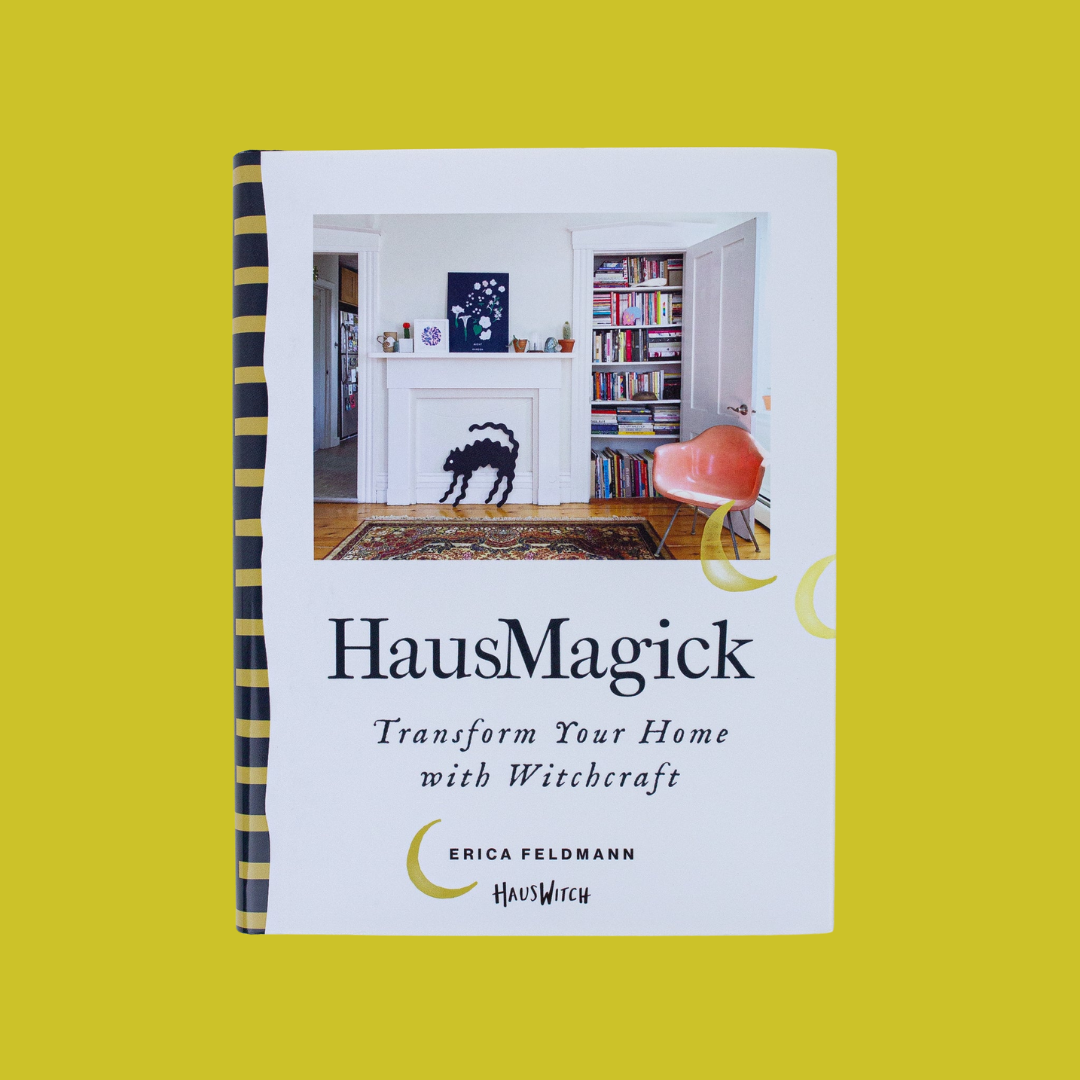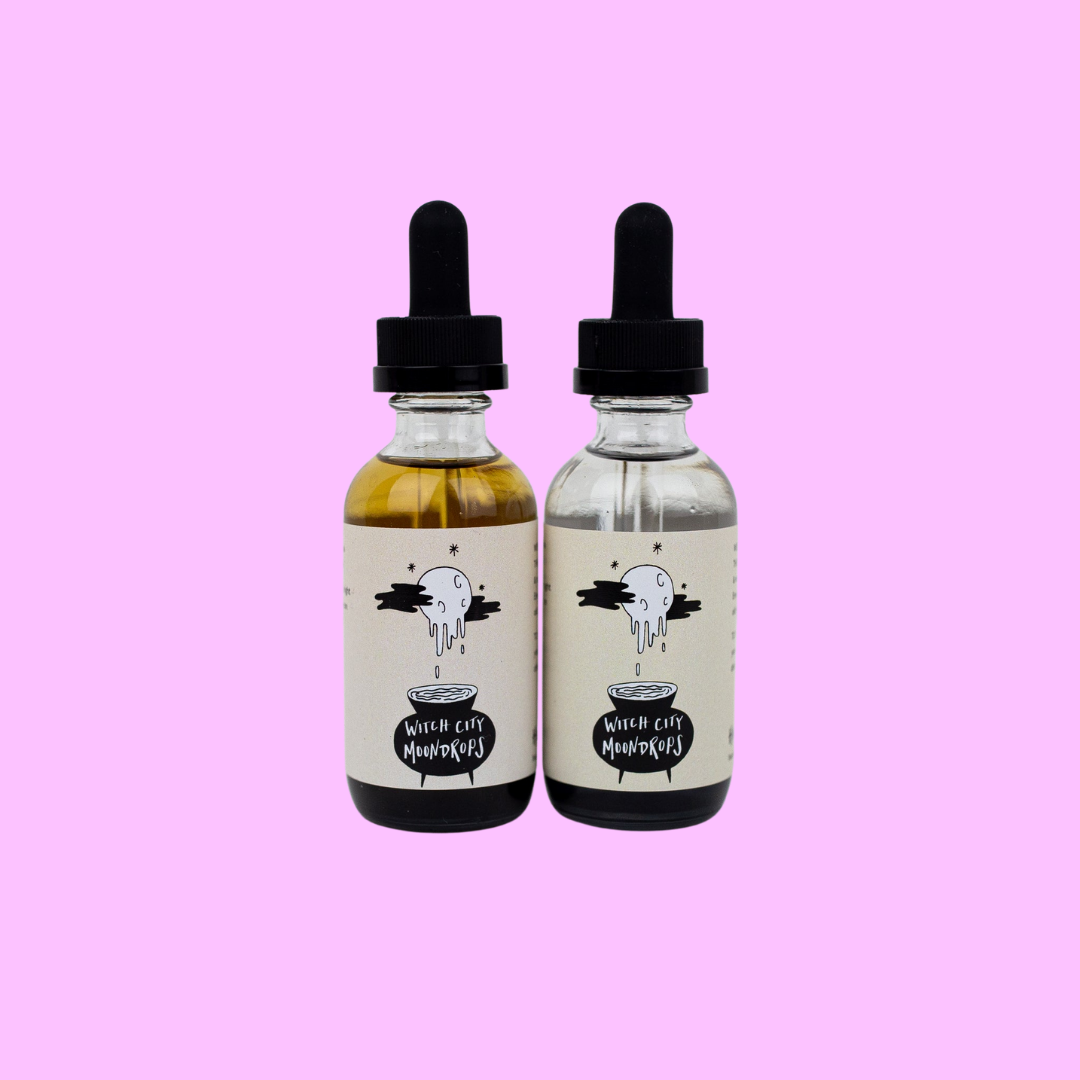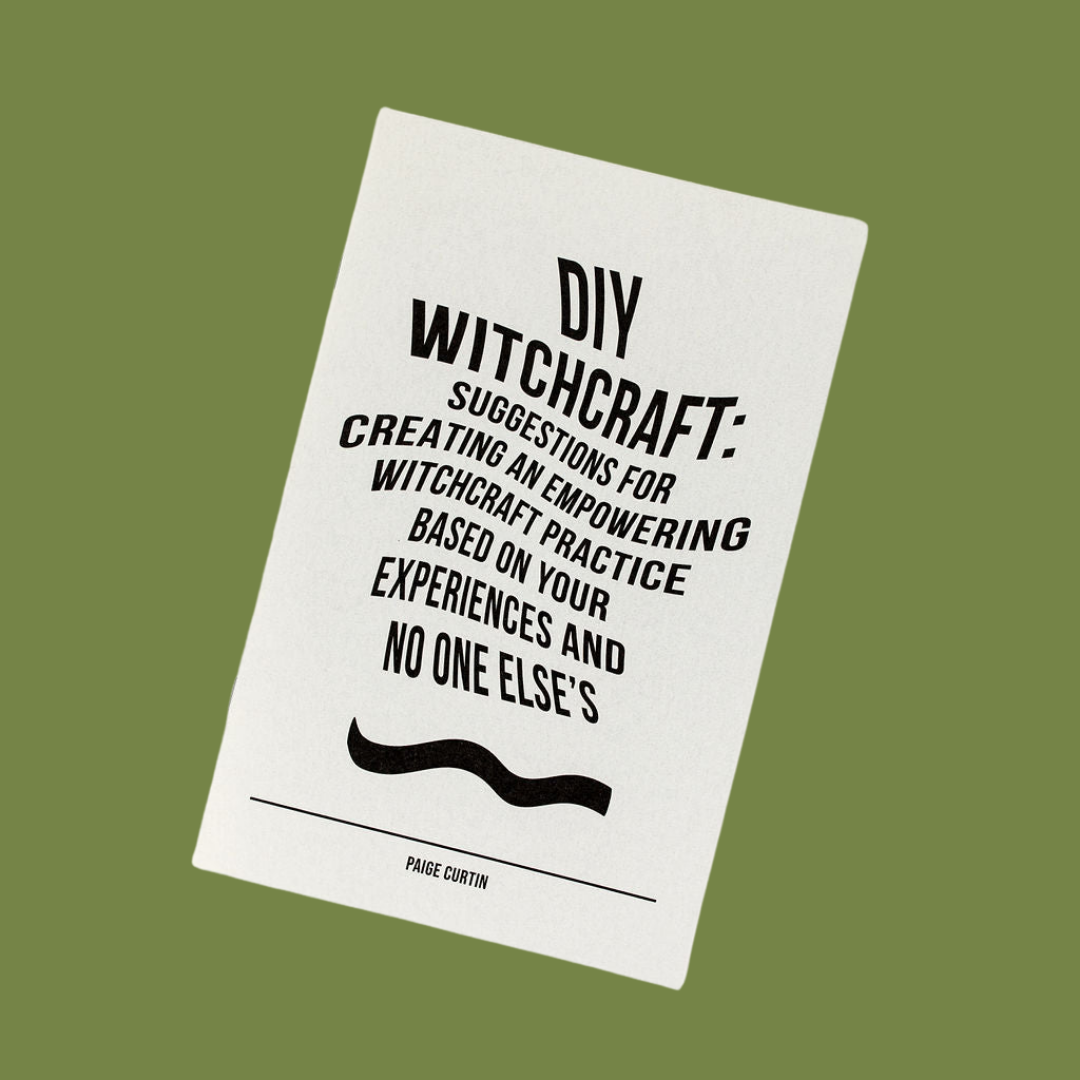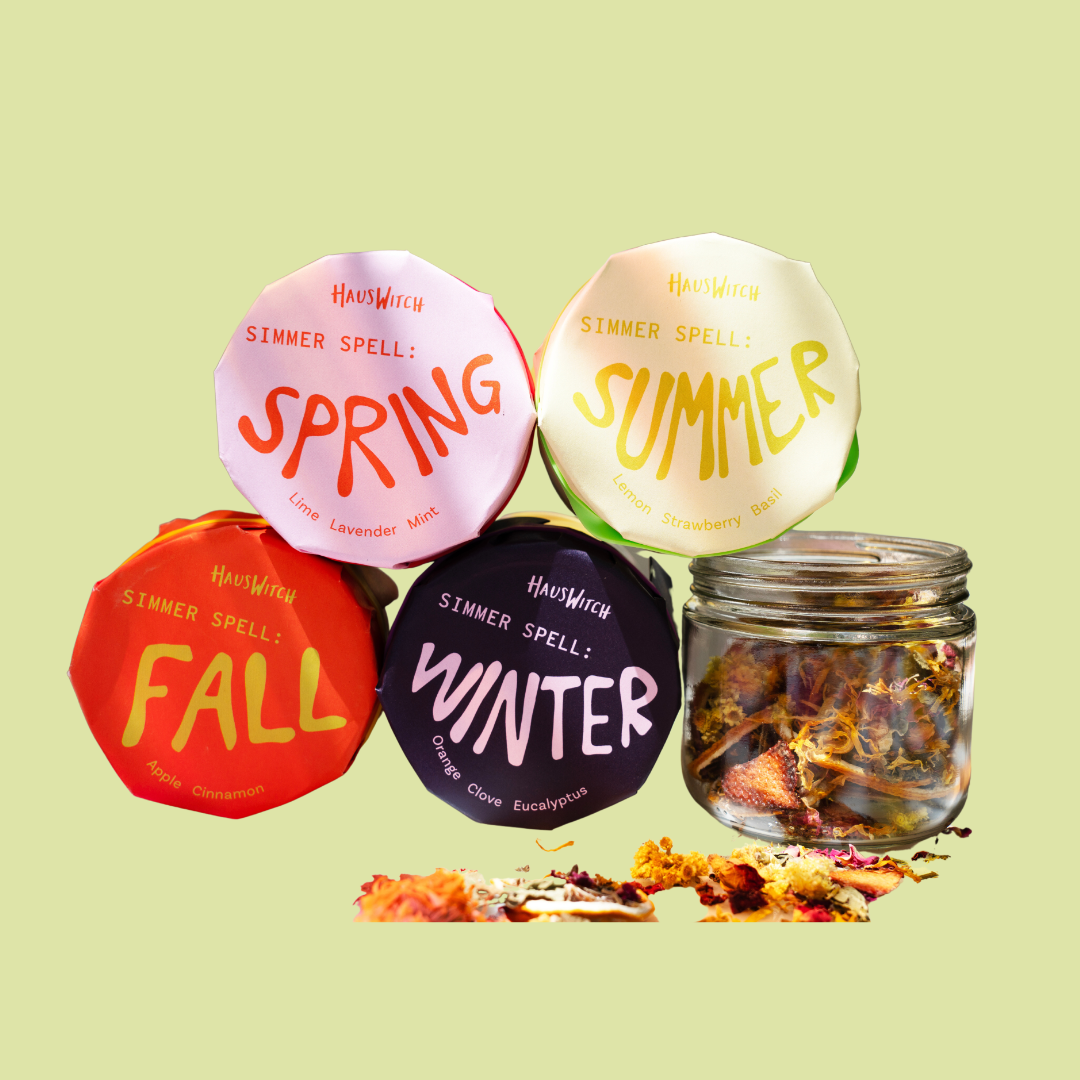
My first interaction with Ariel Gore's work was reading her surreal book We Were Witches. This novel brought my whole consciousness into her world: a world where she was a queer witch mom superhuman attending college and making things happen for herself and her daughter, under hardship and circumstances beyond her control. Reading such honest writing gave me chills. Now she's collaborated with some truly talented witches to bring us the spells of the revolution: Hexing the Patriarchy: 26 Potions, Spells, and Magical Elixirs to Embolden the Resistance! These are spells for supporting yourself and your fellow activist witches. You can preorder this totally amazing book here and it will ship out October 15th — just in time for some powerful Samhain magic!
I was lucky enough to be able to ask her all the questions that have been knocking around my brain since reading We Were Witches and get the scoop on her latest work. Take a moment, sit outside, and read all about your next favorite author.
Cheryl Rafuse: How has being a witch impacted your career?
Ariel Gore: Well, if you’re a writer you need magic! Magic to make the books and magic to publish the books and magic to push through the anxiety when the books come out. You need spirit allies to open doors for you in misogynist institutions and you need spells to support feminist endeavors. So I imagine things would have been a lot more challenging if I wasn’t a witch.
CR: Even in Salem we've found some folx to be less welcoming than others. Were you always open about your witchcraft?
AG: Sometimes — and in some places — I’ve been more open than others. My first regular writing gig was with a feminist newspaper where I was sent to cover women’s spirituality conferences in Northern California the early 1990s. Then I went to Mills College in Oakland and I think my first two articles for the college newspaper were a push for on-campus childcare and a feature on all the student covens. So those were good contexts to write about witchcraft. But I do always like to be at least somewhat aware of my context. Because sometimes people aren’t going to take you seriously, and that can make things difficult when you’re trying to make a living. Or sometimes people WILL take you seriously and then they’ll be afraid of you.
For all our talk about hexing, my experience is that a witch is the LAST person who is going to go out of her way to hurt you, but independent women frighten people. And of course witchcraft is always a threat to the patriarchy. It’s their kryptonite and they know it. So I think it’s always a good idea to balance fearlessness and stealth. There are historical and contemporary reasons for secrecy, as our ancestors learned in Salem and elsewhere. We don’t have to be out to everyone all the time.
CR: The publishing world can be especially tough for marginalized people to get their voice heard. What advice would you give queer, BIPOC or other groups trying to get noticed?
AG: Trying to center the cis-white male in narrative is basically a waste of time. It’s what a lot of us were taught to do for survival—to make our work “accessible” to the mainstream that never tried to make their work accessible to us — but it’s a waste of time. Write from the piece of earth that you — and sometimes you alone — stand on. And then figure out how to write insanely professional cover letters. Try to get your stuff proofread by your Virgo buddies in exchange for sweet treats. Meet your deadlines. You don’t want to compromise your creative work, but I think it’s okay to play pretty strictly by their professional rules if you want to be accepted into their commercial world.
And know that publishing deals fall through all the time. So you will get in here and then something will blow up and then you’ll get back in there by stealth or luck and then that may or may not work out . . . this kind of chaos is totally normal in the publishing world and I think it’s hard for a lot of us not to take it personally and give up, but it’s not personal. It’s just the way that world works. It can be super frustrating.
And don’t be afraid to learn how to self-publish beautifully and do that. We don’t actually need the old structures in order to live and work creatively. Sometimes we have to work within the old structures for survival, or to bring in money for our other life-projects — I certainly worked with some big dogs when I needed to pay for my daughter to go to college — but we’re not going to need those old systems moving forward. So try always to be building the new systems as well. Build the systems in which historically and presently marginalized people are centered and can thrive.
Being creative is your birthright. It’s all our birthright.
CR: You talk about breaking the rules and we're curious: Do you have certain pillars or words you live by instead of following the status quo?
AG: What we’re called upon to do right now isn’t unprecedented in history, but it’s one of the big ones. This is one of the big moments when we’re all going to look back and we’re going to want to say that we behaved in a way that we’re proud of. Fundamentalist Christianity and all the powerful structures created specifically for the subjugation of others would like us to believe that there was once a prophet who had magic, but what if we all have magic?
We all have the magic.
How are we going to use our magic?
If I get into an historically closed space, I make sure to run to the back door right away and open it up. Get as many previously-marginalized people in as we can. Flood the previously-closed spaces!
How else are we going to use our magic?
Ask yourself that every day and act on your most radical and equity-forward impulses!
CR: Who is always on your altar?
AG: Doreen Valiente, Marie Laveau, Audre Lorde, Mary TallMountain, Augustine Gleizes, Tillie Olsen, Adrienne Rich.
CR: Tell us how Hexing the Patriarchy came to be! We're so excited for it to come out (and to see the spell that Erica contributed!)
AG: The rise of public fascism in this country has been met with a more powerful rise in public witchcraft. I was thinking about that a few years ago when I was hiking in a desert with my kids and we were all grumpy, lost, out of water and I got my phone out and miraculously we had reception and so I reached out to my editor-colleague at Seal Press, Laura Mazer, and I said, 'Laura, I want to put together a collection of spells from around the country and around the world' and she said, YES! And then I reached out to Lacey Prpić Hedtke at The Future in Minneapolis, which is a magical Spiritualist space there, and I said I need week-long residency to get this collection started, and she said YES!
Erica’s spell is a centerpiece of the book. The book is organized alphabetically and she’s “M,” and more importantly this is the spell that really brings together capitalism and patriarchy as enemy and points us to a new route out.
CR: Who are your main influences? Guides, archetypes, powerful womxn, etc? Is there a goddess of writing we should all be worshipping?!
AG: I think for writers and artists and witches who are witches because witches have agency, it's cool to experiment with being your own goddess. I mean, what would that look like? Start meditating on that — on what that would look like and what that does look like — and roll with it. Is your own goddess an alter-ego? Your own imagined grandma-self? What would it look like if you were the source of all wealth, the source of all creativity? What if you were your own sugar mama? Certainly worth exploring.
CR: You have a magical writing workshop Erica is taking that sounds amazing. Can you tell us a little more about that? And would you ever want to do an in-person workshop at the shop?!
AG: Oh, I love my Magical Writing workshop! I’ve been teaching it online every few months for about a year. We use writing exercises drawn from American Spiritualist tradition, we use Tarot spreads to plot stories, we commune with the moon. It’s weird and fun—just a great magical laboratory—and the stories that have come out of it are spectacular. I’d love to do an in-person workshop at Hauswitch as soon as get out East.
CR: Let's do a fun one to wrap up: What is your favorite spell? like the one you do all the time that's an old standby?
AG: I often find the most powerful spells are the simplest — just made of words. I love the way words become a magic wand. Some years ago when I was struggling financially and also feeling wah-wah about my career because the work of a writer can be so undervalued, I started just getting in the habit of saying to myself whenever I thought of it, “I love what I do and I am successful beyond my wildest dreams.” I’d just say that to myself whenever I remembered — maybe every day when I woke up but probably not 100% consistently. And then one day when I was saying that to myself almost instinctively, out of the habit of it, I thought, "Hey, wait! That’s fucking TRUE!” And then it just sort of naturally morphed from a spell into a reminder of what is.
--
Ariel Gore is the editor & publisher of the Alternative Press Award-winning magazine Hip Mama and the author of ten books of fiction and nonfiction. Her latest, Hexing the Patriarchy, due out in October from Seal Press, is available for preorder wherever books are sold. Her shameless novel/memoir, We Were Witches, was published by The Feminist Press. Her memoir, The End of Eve, has been called “Terms of Endearment meets Whatever Happened to Baby Jane?" She teaches writing online a Ariel’s Gore’s School for Wayward Writers at the Literary Kitchen. Follow her on instagram @arielfionagore.
Ready to read more from Ariel Gore? You can preorder Hexing the Patriarchy: 26 Potions, Spells, and Magical Elixirs to Embolden the Resistance! in our online shop and watch this space for more spells and magic!





